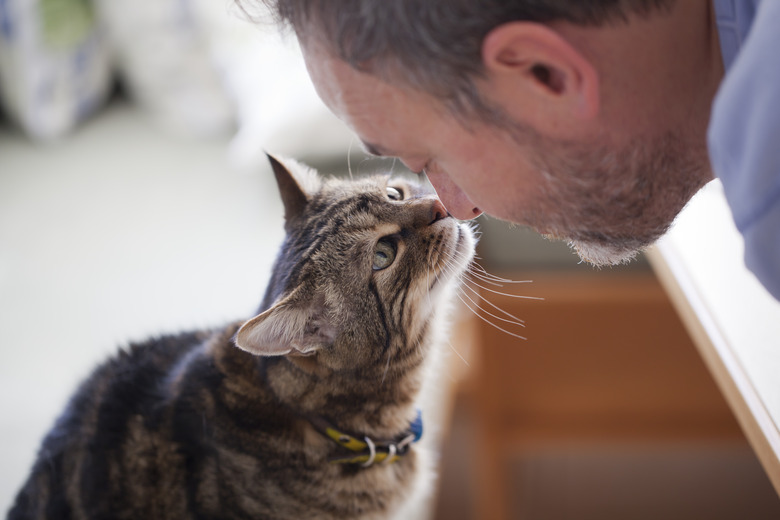Do Cats Remember People After Years?
As humans, we certainly remember the cats in our lives long after they're gone. The kitten you had as a kid turned into the cat that met you at the gate when you came home from school and followed you to the bathroom. But what happened when you had to say goodbye when you went to college? Do you think the cat missed you or remembered you when you came back months later for a spring break visit?
Short-term cat memory
Short-term cat memory
A 2015 study suggests that many animals don't have a short-term memory. In this study, researchers examined 25 species from dolphins to bees and found that the average short-term memory span was only 27 seconds. A dog's memory span was actually quite long at two minutes. So how does your cat remember that he knows you?
Cats and other animals use associative memory to store away information that helps them survive. Unsurprisingly, this means remembering the places where they get food and shelter. These associative memories are what regulate a cat's ongoing behavior. Cats will, for instance, run to the kitchen when they hear the sound of an electric can opener, even if it's not their normal feeding time.
This associative memory is likely how your cat remembers you. He may not remember specific interactions with you, but he will come to associate you with food, shelter, and love. Providing these three crucial things makes you pretty unforgettable.
Cats do miss us
Cats do miss us
Many animal behavior researchers believe cats do miss their owners, but the ways they show that might not be apparent to us. Cats missing their person often show their stress by relieving themselves outside the litter box, and with good reason. As a cat becomes stressed out, the skin of her bladder wall may become inflamed and irritated due to stress hormones in her blood.
Unfortunately, many cat owners who come home to accidents outside the litter box believe their cat relieved himself in anger to spite them for being gone so long. They then reprimand the cat whose behavior was really a sign of loneliness and distress. If your cat has accidents when you're away, it's because he misses you, not because he is angry at you.
Your cat may miss you even more if he has imprinted on you. Cat imprinting is the process by which a kitten bonds with his mother as she cares for him. When your cat is taken from his mother at a young age and comes to live with you, he may imprint on you. If so, he's even more likely to remember you after long absences and miss you when you leave.
Do cats miss us?
Do cats miss us?
For every study that seems to signify that cats do miss us, there is another that says they don't. Some animal behaviorists report that cats don't show signs of secure attachment to their owners.
In one 2015 study, researchers attempted to examine the strength of the cat-owner bond by looking at 20 cats and their owners. The study concluded that cats did vocalize more when their owner left the room than they did when a stranger left. However, in the view of the researchers, this was not strong enough evidence of a secure attachment.
So what do we know?
So what do we know?
Clearly, it's hard to conclusively say how long cats remember their humans or how bonded they truly are to them. It's of note, however, that cats have lived alongside humans for thousands of years. Surely they are getting something out of the arrangement, and they have learned to understand us and the ways we communicate.
Studies show us that cats do experience a greater bond with their owners than they do with a random stranger. Other studies go on to say that cats will follow gestures when humans point to food. When a cat's owner acted scared by the noise of a fan, cats in a different study moved further away from the fan. So either the cats were responding to the emotional state of their owner, or seeking security from the owner, all of which strongly suggest that cats do know who we are and care about us.
References
- National Geographic: Many Animals—Including Your Dog—May Have Horrible Short-Term Memories
- The Dodo: Does Your Cat Miss You When You're Gone?
- Plos One: Domestic Cats (Felis silvestris catus) Do Not Show Signs of Secure Attachment to Their Owners
- Scientific American: What We Understand about Cats and What They Understand about Us
